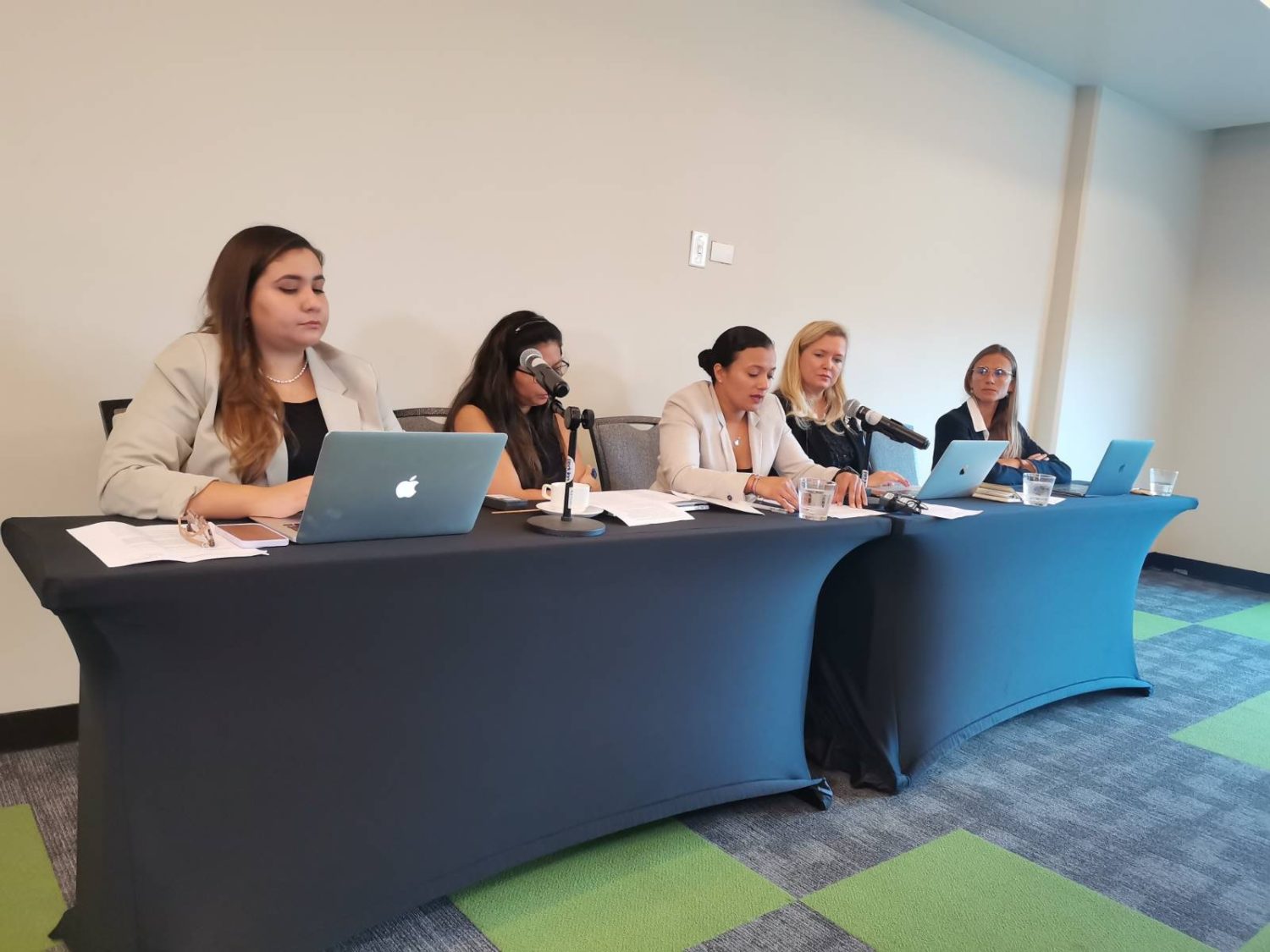UN expert Vasilka Sancin: Nicaragua must re-establish effective communication with international mechanisms
San José, December 7, 2022.- The State of Nicaragua must reestablish “effective and constructive communication with all international mechanisms”, assured the former Vice-President of the Human Rights Committee and current […]

San José, December 7, 2022.- The State of Nicaragua must reestablish “effective and constructive communication with all international mechanisms”, assured the former Vice-President of the Human Rights Committee and current member of the Advisory Committee of the United Nations Human Rights Council, Vasilka Sancin, in a press conference following up on the concluding observations issued by the Human Rights Committee last November 3.
The conference was also attended by Nicaraguan human rights defenders Alexandra Salazar, Coordinator of the Legal Defense Unit (UDJ), and Wendy Flores, Coordinator of the Human Rights Collective “Nicaragua Nunca Más”, who assured that the 17 observations of the Committee encourage them “not to stop demanding justice and freedom” and to continue their work of documentation and denunciation.
Of the recommendations addressed by the Committee, the speakers highlighted the situation of persons deprived of liberty for political reasons, the rights of indigenous and Afro-descendant peoples, the situation of women’s rights in the face of violence, the excessive use of state forces, the lack of independence of the branches of government, among others.
On the situation of persons deprived of liberty for political reasons, Ms. Sancin stated that the State of Nicaragua must take strong measures to “ensure that the right of habeas corpus is available to all detainees” and the application of the United Nations Standard Minimum Rules for the Treatment of Prisoners (Nelson Mandela Rules) in detention centers; and urged the Nicaraguan authorities to immediately release persons arbitrarily detained in the context of the socio-political crisis and the general elections of November 2021.
Sancin also referred to the need for Nicaragua to consider holding new elections “with full guarantee of the right to vote and freedom of candidates, according to Article 25 of the Convention (International Covenant on Civil and Political Rights), with the presence of international observers”.
On the other hand, Alexandra Salazar denounced that the State of Nicaragua “has instrumentalized the national legal system and other norms to violate the rights of the citizenry […]and to guarantee the repression and criminalization against those who oppose it or who dare to dissent from the political will of the party”.
Salazar also expressed the urgency of having a Human Rights Ombudsman’s Office that complies with the Principles Relating to the Status of National Institutions (Paris Principles) and “carries out its mandate in an effective and independent manner, especially with regard to acts of torture, ill-treatment, cruel and degrading treatment to which political prisoners are subjected”.
Wendy Flores, for her part, recalled that follow-up actions for the effective implementation of these recommendations should be carried out in Nicaragua “with human rights defenders who are still in Nicaragua” and with those who are in exile, and “in dialogue with the different State institutions on the challenges that each of them must face in order to improve and comply with international commitments and obligations”.
Unfortunately, “as the Committee has examined, a series of legal instruments must be reformed or repealed because they are incompatible with the obligations of the Covenant,” added Flores. Among these instruments, she mentioned the Law on the absolute criminalization of abortion and other laws that have allowed the increase of femicides and violence against women.
Finally, the expert invited the State of Nicaragua to implement the recommendations resulting from the review in order to overcome the crisis that has afflicted the country for more than four years, and recalled that the State Party has the duty to disseminate them widely with a view to raising awareness of the rights enshrined in the Covenant. Sancin expressed the hope that the State of Nicaragua would engage in a constructive dialogue with the Human Rights Committee before 2025, when the next review of Nicaragua will take place.

